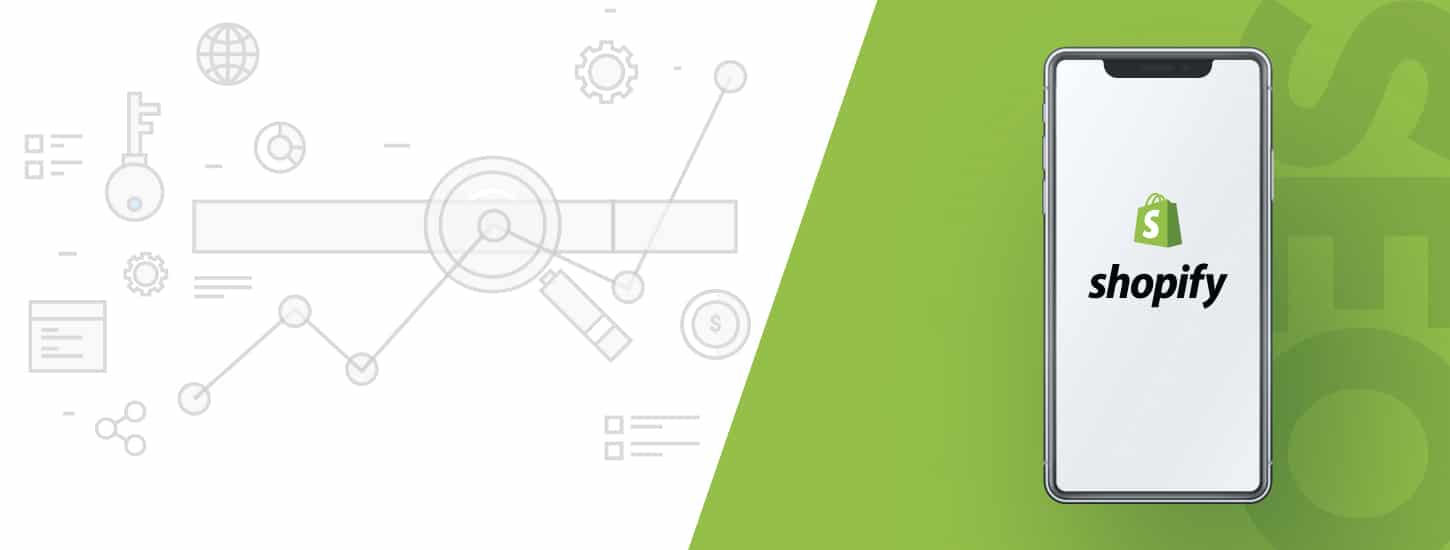
March 22, 2021
3 Tips To Improve Your Shopify Store’s SEO Value
With online sales increasing 25% in the last year alone, ranking highly in search engines has never been more crucial, and brands must optimize their site to stay competitive in the digital landscape. There’s more to achieving high rankings than optimizing a few things here and there and moving on. SEO is constantly evolving and your e-commerce store’s ranking could change suddenly if you aren’t attentive or staying up to date with the latest trends and SEO best practices. Read on to learn how you can get more sales on Shopify by utilizing SEO best practices.
Not sure where to start? Here are three simple ways to improve your Shopify SEO:
Tip 1: Optimize Page Titles & Meta Descriptions
Page Titles: Did you know Google only displays 50-60 characters of most page titles? Your page titles are essential for grabbing the attention of searchers and attracting them to your store. However, if they’re too long, Google might not display important information to searchers. Keep your titles under 60 characters so they aren’t shortened in search results. Tip: Include your targeted keywords near the beginning and add callouts to highlight key information.
Meta Descriptions: Your meta descriptions provide more in-depth information to users directly on the search results page. You don’t want Google to leave out any information for these either. Aim to keep meta descriptions under 155 characters. Although Google has confirmed there isn’t an exact character count limit, we’ve found most are cut off around the 155-160 character mark. Put your strongest copy at the very beginning of your meta description. Make a mock meta-description here on our website to see how your latest version looks.
Tip 2: Create a Basic Content Marketing Strategy
What better way to market your Shopify store than talking about it and what your customers are looking for? Content is king in SEO, even for Shopify stores, and if you don’t have a content strategy already, you need one. Developing a full-fledged strategy for every channel could take months, but there are some basics to get you started.
First, try to understand what your customers want to know about your brand and products. Look at customer comments and questions on social media, and utilize them for new product categories, landing pages, and blog posts. You might find that things that seem intuitive or common knowledge to you aren’t to your ideal customers. For example, if you sell apparel, people might wonder how to style your products. A guide with styling tips could provide inspiration and answer their questions. Creating content to answer these common questions provides additional value to shoppers and could compel them to buy from you instead of your competitors.
Tip 3: Use Reviews to Your Advantage
Rarely do online shoppers buy a product based on the product description and branding alone. Social proof is a core element of any successful marketing strategy, and online shopping is no exception. Users want to know what other people have to say about your products and their experience shopping with your brand. In fact, research shows 95% of shoppers read reviews before making a purchase, which means reviews are essential for building trust.
If you have reviews on your site, make sure they are easily accessible and highlighted on each product page. You should even consider adding reviews to your landing page. You can do this for free with Shopify’s Product Reviews app, which adds SEO-friendly review scores to all your product pages.
Promote Your Shopify Store with the Help of Our Digital Marketing Experts
If you’re getting sales but struggling to scale your brand with a consistent marketing strategy, we can help. Our team of Shopify marketing experts will handle content, backlinks, your pay-per-click strategy, and more for you. VELOX Media stays on top of the latest trends and techniques for Shopify sales so you can focus on your products and other aspects of your business. Fill out our form below for a free SEO site audit, or call us to speak to one of our Shopify SEO experts to learn more about our services and results.